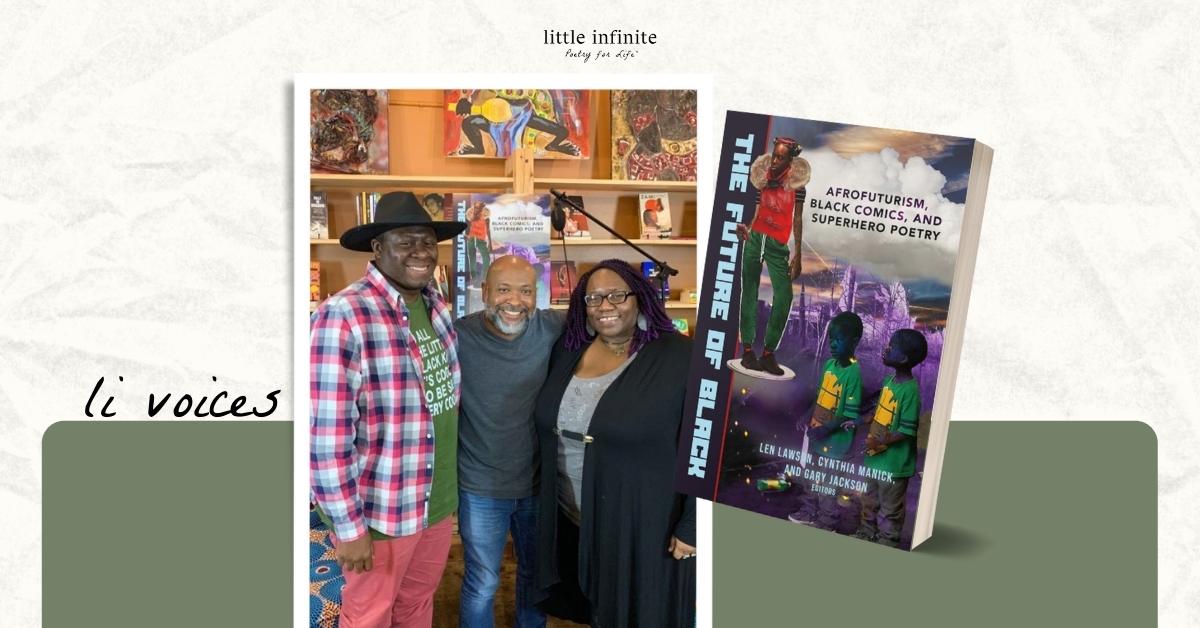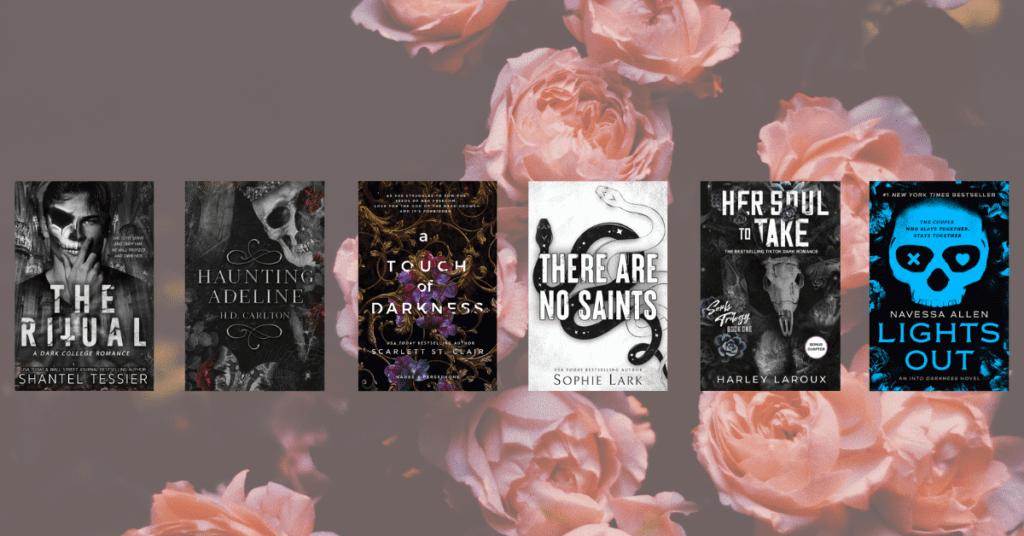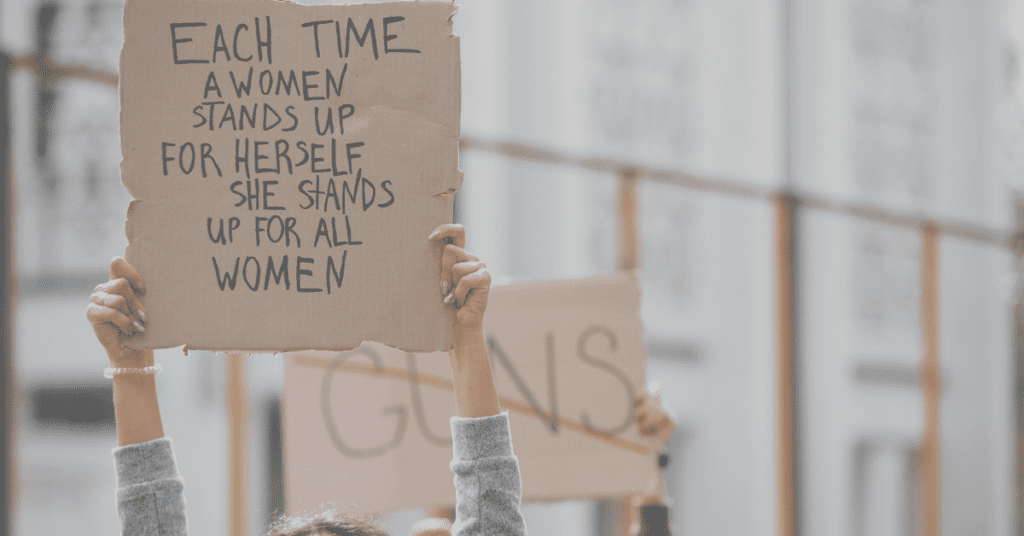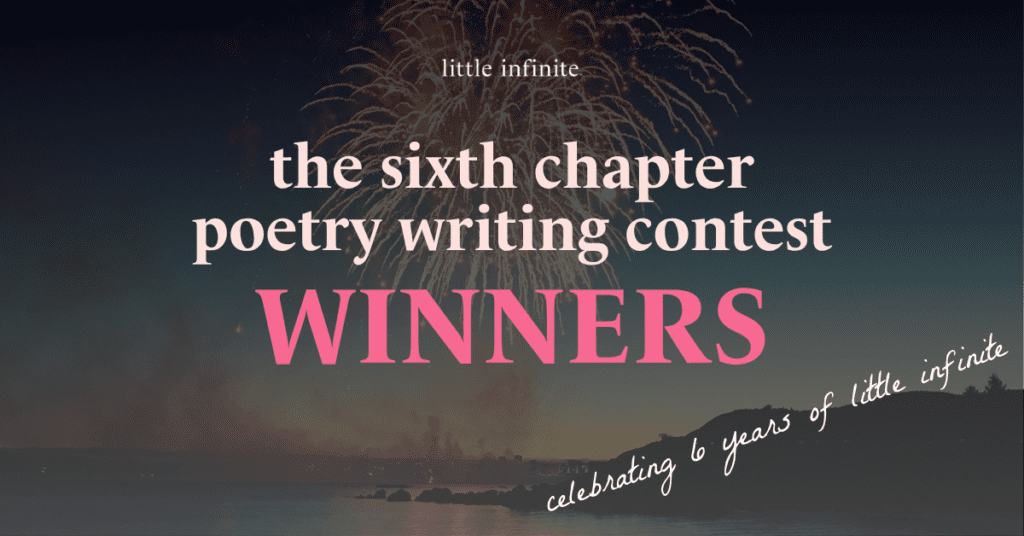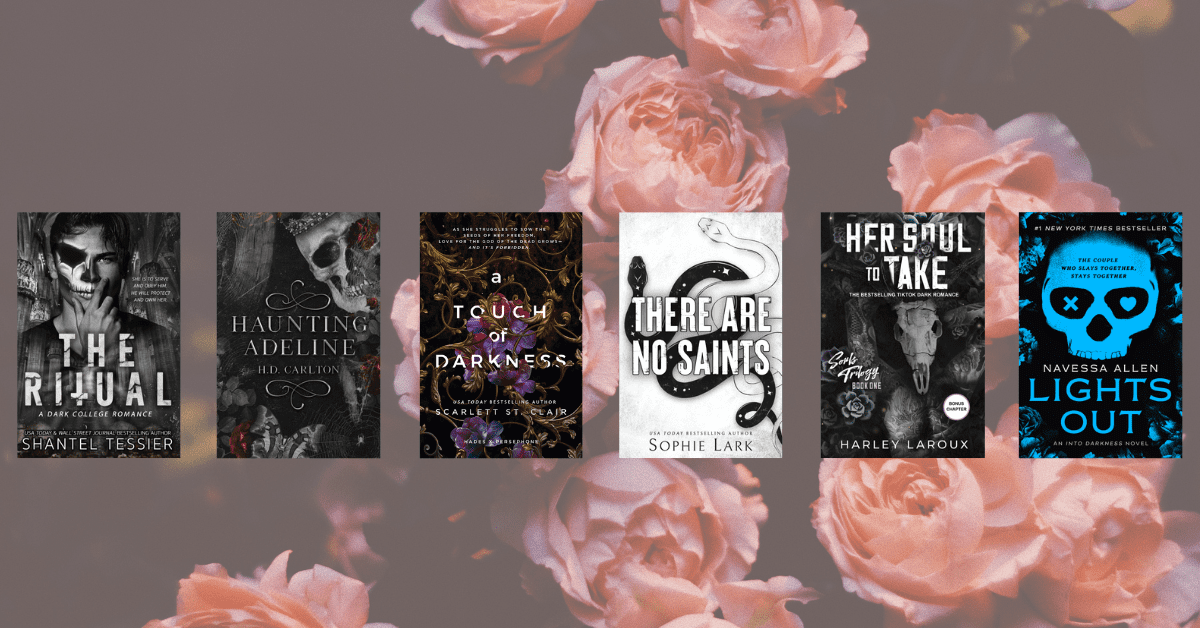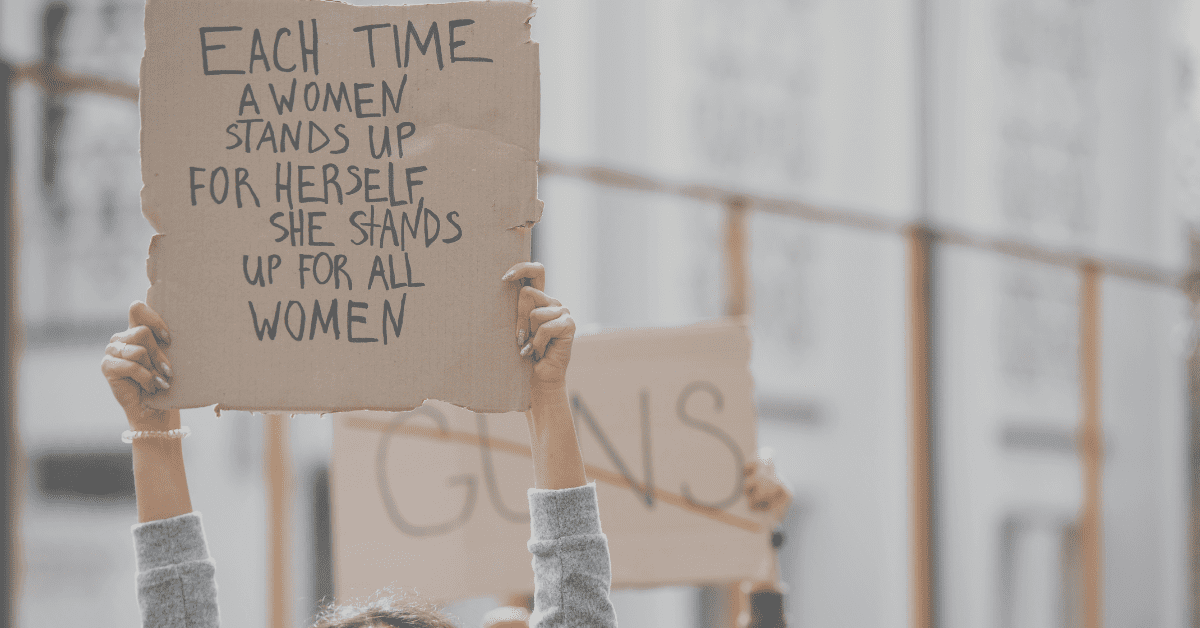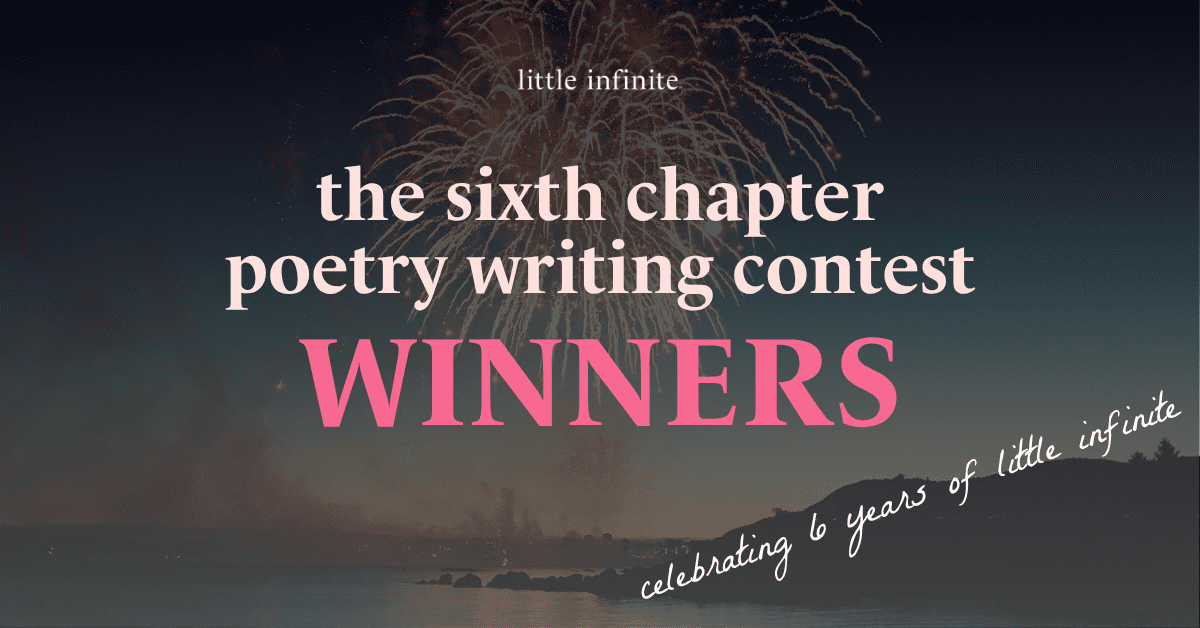We’re excited to introduce you to a poetic dream team! Editors Gary Jackson, Len Lawson and Cynthia Manick joined forces to create a one-of-a-kind poetry collection, The Future of Black: Afrofuturism, Black Comics, and Superhero Poetry.
(Yes, you read that right– Afrofuturism, Black Comics, and Superhero Poetry!)
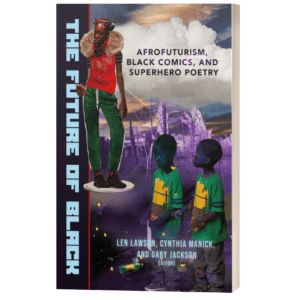
This carefully curated selection of poems examines the African diaspora by reimagining the lives of everyone’s favorite superheroes! Constructed during the height of the 2020 pandemic, Jackson, Lawson, and Manick created this anthology to remind readers that everyone holds the power to live a limitless life.
Get to know the masterminds behind this groundbreaking collection with us as we cover everything from their creative processes to their favorite superheroes.
“A good poem can not only move me to great emotion or action, but can impart some meaning or understanding I’ll take to my grave.”
– Gary Jackson
Kelsey Gooden: What is your relationship with poetry like? Introduce us to your journey to poetry and how you got to where you are currently.
Len Lawson: Poetry has been a part of me since birth. It is a God-given ability and platform that I’ve been privileged to develop and share. At a young age, I would experiment with poetry as gifts for family members. I placed in youth poetry contests. Even when I neglected poetry and majored in business as an undergrad, I still wrote poems and posted them on my bedroom wall (the writing was literally on the wall that I was a poet). Eventually, I decided to pursue poetry more professionally driven by a purpose to develop my raw ability. I keep that fire for the craft in me to this day.
Cynthia Manick: I started writing poetry in high school as an outlet. Then I read the work of Maya Angelou and realized that people who look like me could write and claim the title of “poet” for oneself. High School led to college, travel, MFA, and workshops with great mentors who taught me craft and how to hone my voice. Poetry is something I’ll always do and even in conversations with people I’ll randomly pause and say that’s a great word.
KG: Who are some of your favorite writers/poets? How do they inspire you?
Gary Jackson: I love, love Lucille Clifton, Lynda Hull, and Ai. I’ve always appreciated Ai’s persona poems and her willingness to take on voices that are capable of such cruelty, yet somehow she’s able to render them as fully human—without casting judgment or condemnation. And speaking of voice, Clifton and Hull have such distinct voices with startling imagery and acrobatic associative leaps, using deceptively clear and concise language. There’s a vulnerability and sharpness in their work that I always strive for in my own.
Len Lawson: When I was a high school geek who loved literature, something connected with me in my English class to the works of Toni Morrison and Zora Neale Hurston, mainly because they looked like me unlike most of the authors we read. The catalog of Morrison’s works is unmatched, and her impact on world literature is indelible. I am also inspired by poets like Gwendolyn Brooks, Lucille Clifton, and the great playwright Lorraine Hansberry. I can find myself in their words and their work as artists.
KG: As a fellow superhero fan, I was overjoyed to see my love for poetry meet my love for Marvel and DC! What were your initial thoughts as you found more and more poetry centered around Afrofuturism and superheroes? Were there any particular poems that surprised you?
Gary Jackson: When I was a graduate student, I first stumbled on Lucille Clifton’s suite of Superman poems from her collection The Book of Light, and A Van. Jordan’s DC superhero poems in Quantum Lyrics, so it’s been surreal and thrilling to be able to spotlight those poems/poets for a new audience to discover for (maybe) the first time. But there are so many outstanding poems in the collection that wowed me, I can’t pick favorites, but my hope is that there’s a breath of work that speak to everyone who picks up the anthology—from the superheroic to pure sci-fi to the speculative future to present-day magical realism.
Cynthia Manick: I’ve always had a soft spot for Lucille Clifton’s superman series, so that’s something I wanted the book to have. As poets, we all have B-side poems – those weird poems that we love, they never get published, and they get sandwiched in your book between other successful poems. These are poems that embrace our inner nerd, wanderings, and fun questions that keep us up at night. As I began to read poems for the anthology – I was captivated by the Black imagination and the capacity for re-imagining. Despite movies, tv shows, and cartoons like the Jetsons, Black people are in the future. In terms of poems that surprised me – Tim Seibles Something Like We Did because it made me think of circular time and the possibility of brown skin having a different origin story; Dark & Lovely after Take-Off by Yona Harvey because now I’m obsessed about who will do my hair if I ever board a poetry ship to Mars; and the last lines from TJ Anderson’s Space is the Place – “& I meant to tell you that/ we are both here/ and out there/ at the same time”
KG: What messages do you hope readers take away from The Future of Black: Afrofuturism, Black Comics, and Superhero Poetry?
Gary Jackson: Every world is a Black world. Imagining yourself into the past, present, and future is an underappreciated feat. To use language to exercise that imagination is so goddamned powerful, I can’t overstate it enough.
Cynthia Manick: I hope they realize that everyone has an origin story that can be shared– it can be literal, fantastical, and full of imagination. They can also be the superhero of their lives and wear an S on their chest because there are no boundaries when it comes to what poetry can do or be.

KG: Working in a trio is a unique approach to piecing together this collection! What part of the creative process was the most challenging as a team? What was the most enjoyable or rewarding?
Len Lawson: We did all of the editing, correspondence, and decision-making remotely during the pandemic, but that was the beauty of this team. We each have unique strengths which made the work seem effortless for the most part, and each of us shared the passion to make this anthology its best. Sometimes we disagreed, but we knew we were on the verge of doing something special for Afrofuturism and poetry. The more other poets, artists, and our publisher rallied around the vision, the more excited and gratified we felt.
Cynthia Manick: Well one challenge was putting this collection together and shopping it around to publishers during Covid, so everything was done virtually. But the most rewarding part, was seeing how the poems and artwork started to gradually connect to each other as the separate sections started to emerge. Also having the artwork in color – so people could visually see a representation of the imagination, was amazing!
KG: What book changed your life?
Len Lawson: It’s unfair to choose one book over a lifetime. Outside of the Holy Bible, I will go with the first work of literature that really made the baby kick inside me which was Morrison’s Song of Solomon. I didn’t know literature could be that bold and revelatory, essentially verse woven together as prose. Astounding! Sometimes I’m afraid to read it again because it scared me that a book could do those things to me emotionally and intellectually—perhaps afraid that rereading it won’t be like that first time, which is ludicrous…and frightening.
Gary Jackson: X-Men: God Loves, Man Kills. It was the first comic I read that explicitly reflected the world I lived in. I was a child when I read it, and though I knew the world could be cruel, violent, and unfair, I didn’t think comic books could or cared to reflect that cruelty. That book proved me wrong.
KG: What is next on your creative bucket list? Where do you hope to see this collection and its influence going in the community?
Cynthia Manick: I would love to see this book become part of teaching canon in high schools and universities for poetry, African American Poetry, and Afrofuturism. I also love the idea of teachers using this to convert non-poets to the dark side aka the poetry side!
Gary Jackson: I’m not sure! I’m working on a series of superhero-informed poems and prose that are following similar narrative threads. We’ll see which genre wins out (though my guess is the result will take some hybrid form. Or maybe both genres will complement one another). Also, I’m always, always banging my head against comics. One day I’ll find a way back into that creative world. The few times I’ve done it, have always been fun and rewarding.
“The future of black is bright!”
– Len Lawson
KG: What words of wisdom would give to aspiring writers?
Len Lawson: From experience, I would say make time for yourself and your mental, spiritual, and physical health first. This is a tough business, but it will always be there if we have to take a step back. It also helps to have a strong community to support you and to draw strength from. But eventually, it comes down just to doing the work, and that happens when you’re alone without distractions or cheerleaders. Just write whether you feel it’s too silly or too taboo or too personal or too boring. Writing is as essential to writers as breathing, so keeping writing until your last breath.
Cynthia Manick: There is no limit to creativity, so don’t pigeon yourself to fit a preconceived space. Don’t be afraid to write what you know because no one will ever sound like you.
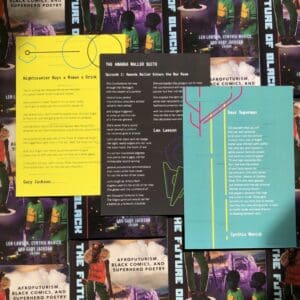
KG: Which superhero do you most relate to and why?
Gary Jackson: When I was younger, I related the most to Spider-Man. There was something about the 80s and 90s Peter Parker that spoke to me: he was always busy trying not to flunk out of ESU while holding down a job at the Daily Bugle, trying to have a social life, pay rent, help out his Aunt May when he could, and fight the Sinister Six. And he was always broke. Aside from the superhero part, I could relate to all of that as a high school and college student. Even though he was a white boy from Queens, his socio-economic status spoke to me 100%. Most other superheroes never had to worry about money or resources or something as simple as being able to afford to take someone out on a decent date.
Len Lawson: Ah! How much time and space do I have here to wax poetically about the greatest superhero of all time? Of course, I mean Batman. I will just say I relate to his cape and his cowl, his identity, losing a parent very young, and relying on intellect to solve problems. I wish I related to his bank account, but I think I relate most to his darkness. No pun intended because I’m black, but yeah that too because blackness, as Paul Lawrence Dunbar wrote, is like wearing a mask. I also relate to Batman’s brooding and living beneath the surface in the Bat Cave. My life tends to be solitary for the most part, and I tend to come out to play only when needed. But I think that level of responsibility and self-awareness is admirable, knowing that your life is one of service and not always indulgence. Yeah, Batman is the best, and it’s not even close!
KG: Poetry for Life™ is little infinite’s mantra. We’re all about making it easier to carry poetry through different phases of your life. Poetry for Life™ can hold sentiment in various aspects depending on the person, which is why we love it. What does “Poetry for Life” mean to you?
Cynthia Manick: A part of me wants to have “Poetry for Life” on jackets and maybe even a laptop skin cover. When we’re young, we question everything. Why isn’t ketchup purple? What if the moon was made of cheese? As we get older, we lose that thread and we’re taught to keep our heads out of the clouds. Poetry for Life means we can do both –live in the clouds and here on line at the supermarket or the DMV.
Len Lawson: Yeah, I can say I subscribe to the mantra of Poetry for Life. For me, poetry is definitely a lifetime calling. I have been blessed with an ability to touch and impact people on a deeper level with poetry than I ever could just with myself. It’s such a universal gateway to difficult and necessary conversations which is why it’s the perfect medium for Afrofuturism in this anthology. Greater than this, though, is the poetry itself. It can open doors show the power of just language. I am grateful to have poetry in my life and have the ability and opportunity to share it with all people.
Gary Jackson: A good poem can not only move me to great emotion or action, but can impart some meaning or understanding I’ll take to my grave. It may not be some great life-changing epiphany or insight, but most moments of meaning aren’t. Take, for example, these final two lines in Ai’s “The Priest’s Confession”:
I’m the hard, black bread on the water.
Lord, come walk with me.
Those lines make me a believer in a way organized religion never could, never did.
